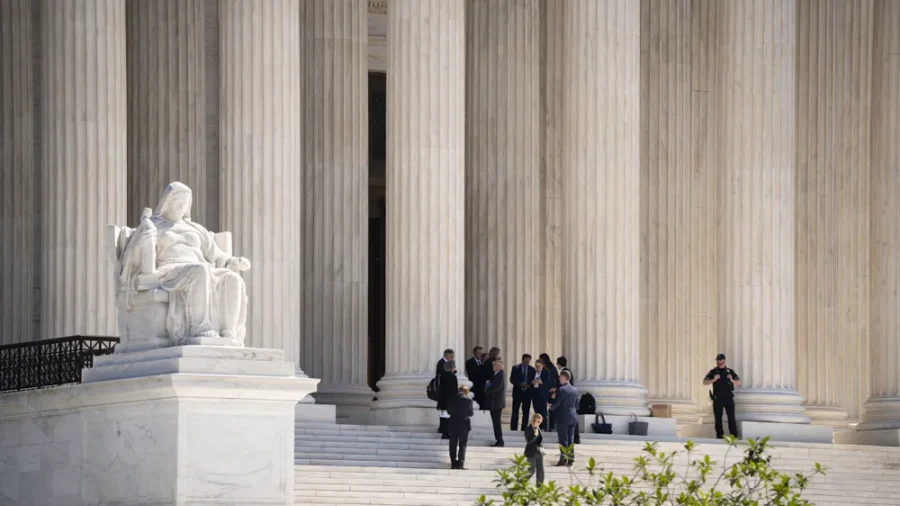The Supreme Court on Oct. 21 decided against hearing an appeal aimed at giving the president the power to fire leaders of independent federal agencies.
The justices denied the petition in Consumers’ Research v. Consumer Product Safety Commission (CPSC) without comment in an unsigned order. No justices dissented.
The lead petitioner, Virginia-based Consumers’ Research, describes itself as an independent nonprofit organization “whose mission is to increase the knowledge and understanding of issues, policies, products, and services of concern to consumers.”
The group argued that the U.S. Constitution empowers the president to remove those in charge of agencies in the executive branch.
It sought to challenge Humphrey’s Executor v. United States (1935), a Supreme Court ruling that held the president does not have the power to terminate the appointment of executive agencies. The precedent cleared the way for the creation of the many federal agencies that now exist.
Consumers’ Research sued the CPSC after it grew dissatisfied with how the agency processed its requests under the Freedom of Information Act.
U.S. District Judge Jeremy Kernodle ruled against the CPSC in March 2022 but reversed his ruling in April 2024 after a divided U.S. Court of Appeals for the Fifth Circuit found against Consumers’ Research in January 2024.
In its petition filed June 14, the group said its filing with the Supreme Court “tees up” the question of whether in “our system of government … a federal agency may exercise substantial executive power while shielded from the President’s supervision and control.”
The Fifth Circuit answered that question in the affirmative earlier this year, ruling in the case at hand that it was bound by Humphrey’s Executor.
While other circuit courts of appeal have “disagreed strongly about whether Humphrey’s extends so broadly, all agreed that this Court’s review is warranted.”
The petition concerned the CPSC, which it described as “perhaps one of the most powerful independent agencies ever created” that “can ban products, file enforcement suits, and secure eight-figure penalties.”
Because the president cannot fire the members of the commission except “for cause … [it] is a federal agency entrusted with substantial executive power, but wholly unaccountable to the Chief Executive whose power it wields.”
Such a situation is “unconstitutional,” as the Supreme Court ruled in 2020 in Seila Law v. Consumer Financial Protection Board (CFPB), which confirmed that “the President’s removal power is the rule, not the exception,” according to the petition.
Separately, in May of this year, the Supreme Court rejected a challenge to the constitutionality of the unusual means Congress uses to fund the CFPB. That agency receives most of the money it needs to operate from the Federal Reserve System, which collects fees from member banks.
U.S. Solicitor General Elizabeth Prelogar urged the Supreme Court in an Aug. 26 brief to deny the petition.
The federal government said the information requests the group made were not enough to give it legal standing to challenge the job security enjoyed by the CPSC commissioners.
Standing refers to the right of someone to sue in court. The parties must show a strong enough connection to the claim to justify their participation in a lawsuit.
Prelogar said the Fifth Circuit rejected the petitioner’s argument that Seila Law made Humphrey’s Executor “inapplicable to any agency that ‘exercises substantial executive power (which nearly all agencies do).’” Seila Law dealt with an unusual situation in which the CFPB was run by a single director instead of a multi-member commission, but the CPSC is run by a multi-member commission.
To accept the arguments of Consumers’ Research would result in “dozens of other agencies” being held to be “unconstitutionally structured,” Prelogar said.
From The Epoch Times

